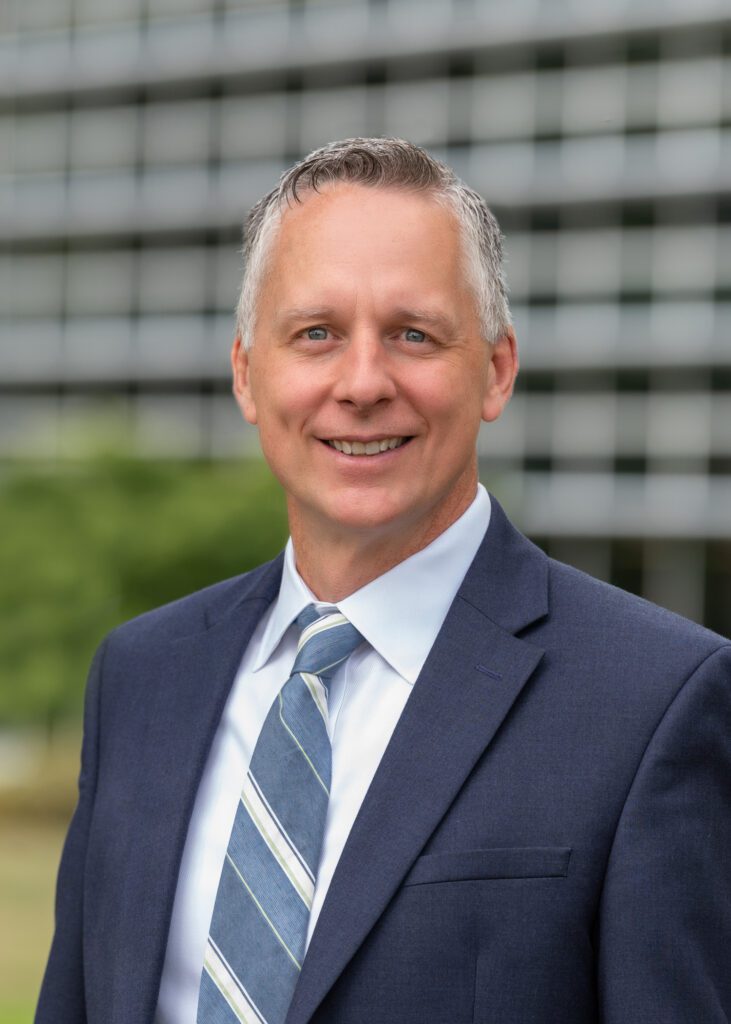Dr. Michael Reed is passionate about serving others. His career path has taken him from equipping individuals in the classroom to elevating entire communities as President of Pennsylvania College of Technology in Williamsport, PA. Reed reflects, “To be perfectly candid, I never thought I would be working at a college, let alone the president of a premier, national leader in applied technologies…I’ve always found the greatest purpose in life is in helping others, and that is what has led me to a career in teaching and counseling. Throughout my professional pursuits, I developed a passion for improving/transforming systems for the betterment of many, by empowering teams and maximizing talents, which led me into administration. While leading a high school, and completing studies through Drexel, I learned of a unique position at Penn College that focused on helping talented faculty become great teachers, enhance industry relations, support students, and oversee a small portfolio of programs. It was a dream position that aligned to both my mental and professional model. I joined Penn College and have never looked back. Ten years and five positions later, I have the honor to learn and lead with this extraordinary team as their president.”
As a student, Reed did not aspire to leadership. His roots in a hard-working, close-knit family have proved foundational to his approach and success. He recalls, “Like most people, no one, including myself, could have predicted my journey. Full transparency, I was an average, middle-of-the-class high school student who did not always make the best decisions. I was one of 10 kids in a hardworking, blue-collar family. Things were not necessarily easy—which I am grateful for now—and looking back, the foundation from high school proved to be really important.“ After graduating Shaler Area High School in 1989, Reed earned a bachelor’s from Clarion University; a master’s from Indiana University of Pennsylvania. While completing his master’s degree, Reed returned to Shaler Area High School to engage his skills through a practicum. He went on to receive a post-master administrative credential and principal certificate from Penn State and his Doctor of Education from Drexel University.
Applied technology colleges play an essential role in communities, equipping individuals to gain the skill they need to find fulfilling careers, while ensuring key positions are staffed. Pennsylvania College of Technology is raising industry standards through their ever-evolving practices that pair hands-on experience with targeted instruction. Reed explains, “Our goal is laser-focused—to place students in the most competitive position possible for long-term success. We boast nearly a 98% placement rate of graduates and a #1 ranking from U.S. News & World Report’s Best Colleges for being the most innovative among Regional Colleges-North. We have experienced significant enrollment growth recently by working closely with industry leaders to meet current and future needs. Students spend three hours in hands-on labs, on average, for every hour of lecture to enhance application and conceptual understanding of critical concepts. In addition to the nearly 4,600 degree-seeking students, we also educate approximately 2,000 high school students across the Commonwealth through dual enrollment, and we upskill/reskill approximately 4,500 incumbent workers every year to help industry partners adapt to the rapid changes within engineering technologies, nursing and health sciences, and business. In short, my primary responsibility is to ensure our team has the resources and support necessary to build the next generation of “tomorrow makers,” so that communities and businesses can thrive.”
Reed encourages students to pair ambition with dedication. He shares, “Three points of advice to consider: work hard, get involved, and don’t fear failure. Ask yourself what you can do today that may potentially place you in a better position tomorrow, and realize that things will not always go as planned. For me, outside of class, I was always working part-time jobs and competing in some level of sports. Working various jobs—from retail, caddying, landscaping, or shoveling asphalt—while keeping up with routine responsibilities, developed a stronger work ethic, and enhanced independence, problem-solving, and people skills that have paid dividends throughout my life. Playing sports was a great release and taught me the power of team. Finally, far too often we get in our own way, or do not take a calculated risk, due to a fear of failure.”




